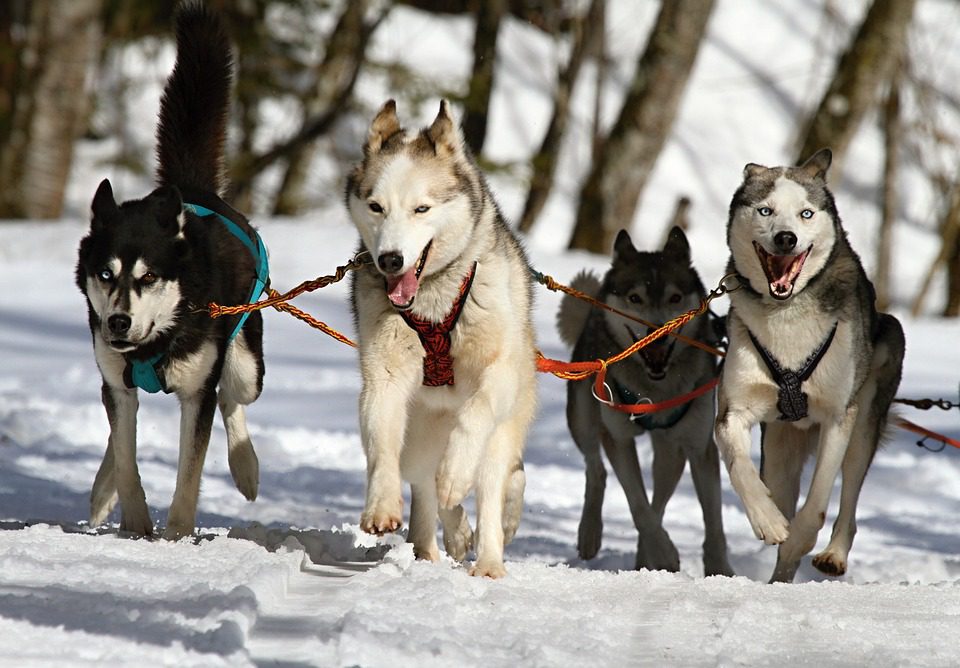The healthiest age to neuter a dog is a controversial topic among veterinarians, pet owners, and animal advocates. Neutering a dog at the correct age can have many benefits, including reducing the risk of certain cancers, eliminating certain behavioral problems, and reducing the number of homeless animals. However, neutering a dog too early can also have some negative effects, such as stunting growth and increasing the risk of certain orthopedic injuries. To ensure the best outcome for your pet, it is important to understand the pros and cons of neutering and to choose the best age for your dog.
Age for Neutering Dogs: What You Need to Know
Table of Contents
When you adopt a puppy, it’s important to have a plan for their health and well-being. A key part of this plan should be determining when to neuter your dog. The healthiest age to neuter a dog is an important factor to consider, as it will affect their life in a number of ways.
Understanding Neutering
Neutering a dog is a common practice among pet owners, but it’s important to understand what it is and how it works. Neutering is the surgical removal of a dog’s reproductive organs, either the testicles or ovaries. It’s done to prevent the dog from reproducing, but it also has other health benefits.
Neutering a dog will reduce their risk of certain types of cancer, particularly of the reproductive organs. It can also reduce their tendency to roam, as well as reduce aggressive behavior. In addition, neutering can help to reduce the number of unwanted puppies in shelters, as it reduces the chances of an unplanned litter.
Benefits of Neutering at an Early Age
Neutering a dog at an early age is beneficial for a number of reasons. First, the procedure is generally easier on a younger dog. For example, a puppy won’t need to be anesthetized, which is often the case with adult dogs.
In addition, puppies are more likely to recover quickly from the procedure, as their bodies are still growing and developing. Neutering a puppy will also reduce their risk of developing certain types of cancer, as well as reduce their chances of roaming and engaging in aggressive behavior.
Potential Risks of Neutering at an Early Age
Although neutering at an early age can be beneficial, there are also potential risks to consider. For example, puppies that are neutered too early may be at an increased risk of developing orthopedic problems, such as hip dysplasia. In addition, they may be more prone to obesity, as their metabolism may slow down.
The Healthiest Age to Neuter a Dog
The healthiest age to neuter a dog is generally between six and nine months of age. This is because, by this point, the dog’s body has had a chance to fully develop, and the risks of complications are minimized.
It’s important to note that this age range is a general guideline and may vary depending on the breed of the dog. For example, large-breed dogs may need to be neutered later, as their body takes longer to fully develop.
What to Consider Before Neutering
Before deciding to neuter your dog, it’s important to consider all of the potential risks and benefits. It’s also important to discuss the procedure with your veterinarian and make sure you understand all of the potential risks and benefits.
In addition, it’s important to consider the age of the dog, as this will affect the risks of the procedure and the dog’s recovery time. Generally, the healthiest age to neuter a dog is between six and nine months of age, but this can vary depending on the breed of the dog.
Finally, it’s important to make sure the dog is healthy and up-to-date on all vaccinations before the procedure. This will help to reduce the risk of complications and ensure the dog recovers quickly.
### Common Myths about Neutering Dogs at a Healthiest Age
There are many myths that surround the subject of neutering a dog at the healthiest age. Here are some of the most common myths debunked:
Myth 1: Neutering a Dog Too Young Is Unethical – This is false. Neutering a dog at the healthiest age is not only ethical, it is recommended by veterinarians in order to ensure the dog’s health and well-being.
Myth 2: Neutering a Dog Too Early Can Cause Behavioral Issues – This is also false. The healthiest age to neuter a dog is typically between 4 and 6 months, which is well before any behavioral issues would arise.
Myth 3: Neutering a Dog Is Unnecessary – This is false. Neutering a dog is recommended by veterinarians to prevent unwanted pregnancy and also to reduce the risk of certain health complications.
Myth 4: Neutering a Dog Will Make Them Fat – This is false. Neutering a dog does not directly cause them to gain weight, but rather the lack of exercise and improper diet are the main causes of weight gain in a neutered dog.
Frequently Asked Questions
At what age should I neuter my dog?
The healthiest age to neuter a dog is between 6 and 9 months. Neutering before this age is not recommended, as the risk of complications increases. Spaying or neutering after 9 months is still safe, but the benefits of the procedure are reduced.
What are the benefits of neutering my dog?
Neutering your dog has numerous benefits. It can reduce aggression, roaming, urine marking, and the risk of certain types of cancers. It also reduces the risk of overpopulation and unwanted litters. Neutering can even extend your dog’s lifespan by reducing the risk of certain types of diseases.
Conclusion
.
Neutering is the surgical removal of a dog’s reproductive organs and has numerous benefits, such as reducing the risk of certain types of cancer and aggressive behavior. Generally, the healthiest age to neuter a dog is between six and nine months, but this can vary depending on the breed. Before deciding to neuter, it’s important to consider the potential risks and benefits, as well as make sure the dog is healthy and up-to-date on all vaccinations.






